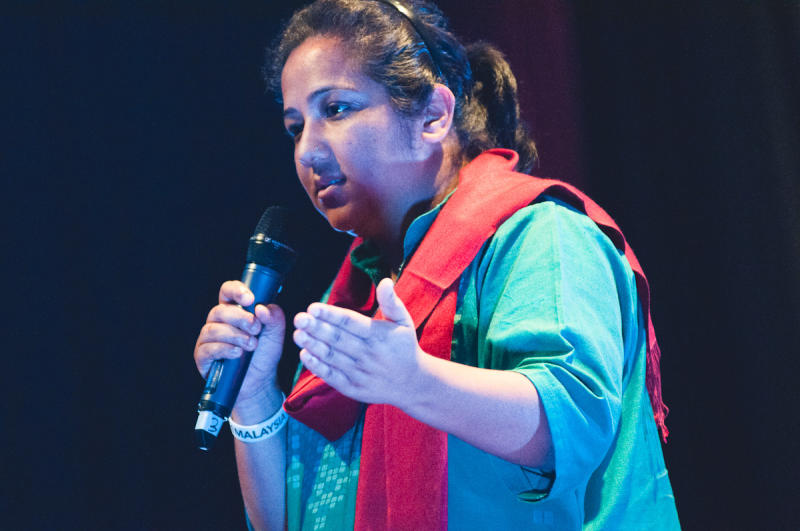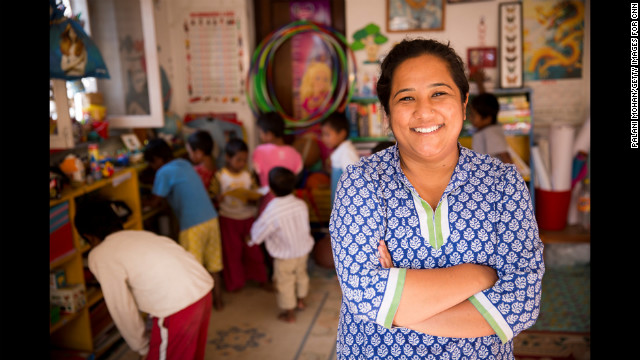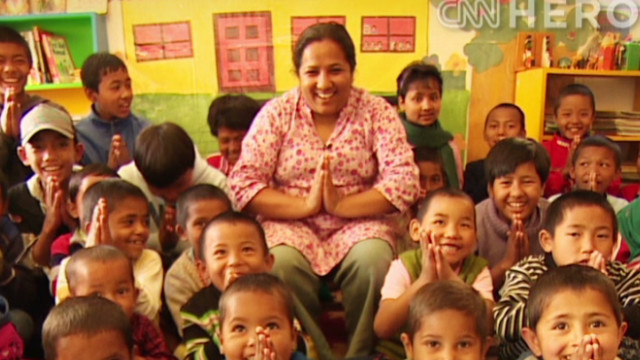By MELLY LING
alltherage@thestar.com.my
WHEN she was 21, Pushpa Basnet made it her life’s mission to ensure that no child should have to live behind bars in her native Nepal.
The state of poverty in Nepal means that parents who are imprisoned are left with two options – to bring their children along to jail, or leave them out in the streets to fend for themselves.
To help change that, Basnet founded the Early Childhood Development Centre (ECDC) and Butterfly Home, both non-profit organisations that provide education, shelter, food, medical care and day care for these children living in prisons.
Just like the many Malaysian social initiatives we talk about in our cover story (page two and three), Basnet struggled to sustain the organisations. But her persistence paid off, as she was recognised as last year’s CNN Hero of the Year, receiving US$250,000 to continue her work.
R.AGE was lucky enough to get the chance to speak with Basnet after her inspiring talk at the IM4U Reach Out Volunteer Celebration, and she said it was those very struggles, and her passion, that helped make her dreams become reality.
1. First of all, congratulations on being recognised as the 2012 CNN Hero of the Year. How did you feel when you received the award?
When I received that first phone call from CNN in December 2011, I was shocked! I could not believe I had been nominated. I was told they were coming down to film my life and after two months of filming, they broke the news to me that I was officially one of the nominees. I felt very happy not only for myself, but also for my kids and ECDC as a whole. Since then, I’ve had more responsibilities, but I can also fulfil the needs of the children better.
2. What was life like for you growing up in Nepal?
I always like to think I am very lucky, especially being brought up by my ever loving and supportive parents. I feel very fortunate and blessed to come from a good family that provides me good education. We had everything, but there are children who are less fortunate and I feel like I should do something about it and help them.
3. What challenges did you face when you were starting ECDC?
I think everyday is a challenge. Even today, you never know what is going to happen. When I first started my initiative, nobody apart from my parents and friends believed I could save the children from prison. There was no support from the government, even up until now. However, the media helped very much with the publicity. That is when the funds and volunteers started coming in. Our hard work paid off as we have rescued more than 150 children from prison, and 100 children have already gone back to their families.

4. Do you consider your initiative a social enterprise?
Yes, you could say that. It is the best thing for every organization. It is not profit-making, but making enough to sustain an organisation so you don’t have to depend on anyone.
You need to find creative approaches to get donations, like selling handicraft made by the children, so even if the donor says tomorrow that they cannot fund you any more, you still have ways to get by. Hence, social entrepreneurship not only helps engage the children, but you are also giving them a skill that will help sustain your organization, and that’s the best thing about it.
5. Do you think young people should get into social entrepreneurship?
Yes, because they are young and fresh with ideas. It is also good for them to start making a change by getting involved for a good cause.
6. Any advice for aspiring social entrepreneurs out there?
Just believe in yourself. Go for your dreams. They can become a reality.
Pic Source: CNN & iM4u



Tell us what you think!